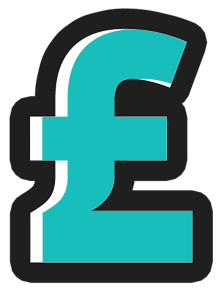

There are a number of indicators which may suggest that an individual could benefit from having an assessment or intervention, including:
DCD affects individuals in different ways, and when specific needs have been identified, they can then be addressed.
A. Motor performance that is substantially below expected levels, given the person's chronological age and previous opportunities for skill acquisition. The poor motor performance may manifest as coordination problems, poor balance, clumsiness, dropping or bumping into things; marked delays in achieving developmental motor milestones (e.g., walking, crawling, sitting) or in the acquisition of basic motor skills (e.g., catching, throwing, kicking, running, jumping, hopping, cutting, colouring, printing, writing).
B. The disturbance in Criterion A, without accommodations, significantly and persistently interferes with activities of daily living or academic achievement.
C. Onset of symptoms is in the early developmental period.
D. The motor skill deficits are not better explained by intellectual disability (intellectual development disorder) or visual impairment and are not attributable to a neurological condition affecting movement (e.g., cerebral palsy, muscular dystrophy, degenerative disorder).
For a formal diagnosis of DCD, a cognitive assessment must be carried out to rule out a cognitive explanation of any motor difficulties. For instance, if a child or young person’s cognitive abilities were assessed as age 7, then it would not be expected for their motor skills to be of a higher age. If motor skills are at a significantly lower age than a cognitive age then that discrepancy could determine whether a child or young person has DCD or not. Our in house occupational therapists carry out the movement and daily functioning assessments, and our psychologists will complete the cognitive assessment.
A cognitive assessment is carried out to ensure that the motor difficulties do not have a cognitive explanation. Some of the areas which may be assessed during a cognitive assessment include:
Cognitive assessments also provide a profile of strengths and weaknesses, which enables us to provide strategies tailored to use strengths and support areas of need.
DCD is assessed by a multidisciplinary team and includes a number of assessments which will be chosen depending on the individual being assessed. An assessment for DCD will involve a full cognitive assessment alongside a selection of motor assessments. Assessments will be discussed during the initial discussion.
There are a range of assessments which can be used when assessing for DCD, although children and young people will not need all of the following assessments, they have all been included for your information:
The particular assessments chosen will depend on the child or young person’s needs and situations and will be discussed during an initial discussion.
After an assessment the information will be collated to show a profile of an individual’s strengths and difficulties. Following an assessment, a report will be provided with the findings and may include recommendations.
Following an assessment, our psychologists might recommend a specialist intervention to target particular areas of needs, or to work on coping strategies using identified strengths. If DCD is identified then a referral to a physiotherapist or occupational therapist may be required, and this can be done in house.
Understanding DCD in more detail and learning how to provide appropriate support helps children and young people to be happy, safe and ready for life’s challenges, which is why we offer psychoeducation of needs to parents/carers and education staff.
Our team support many interventions. Interventions may be related to the following:
We also provide consultancy and recommendations in relation to environmental strategies or support. To find out about interventions which we can support, please contact us.
Developmental co-ordination disorder can impact multiple areas of a child or young person’s daily life, in particular fine and gross motor skills. Early needs identification can lead to effective intervention to provide strategies and techniques. To book an Initial Discussion, or to find out more, then please contact us to speak to a member of our team.
Arrange an Initial Discussion to find out how we can help. The initial discussion lasts 1-1.5 hours, comes with a written recommendation summary and is a starting point to identify needs. The cost is £260.
only
£260








Once again thank you for all your help and for actually listening to me when others wouldn’t.

Jodie (Parent)
Thank you Julie once again for the excellent report, it captured the child’s needs entirely - SENDIASS, parents and me commented on how well written it was. Many thanks for your continued assistance.

SENCO
Sarah Ward was brilliant with us. Really happy with the help and support, would recommend.

Joanne (Parent)
I think the work you have been doing has been great to help break the stigma of mental health and as a fellow sufferer I know how important that is.

Mental health professional
Many thanks for Sarah W’s hard work with our students which has been very well received.

Deputy Head
Really enjoyed it and learnt lots that I can take back to school. Thank you for the quality experience.

Sarah Tindal
Thank you Julie once again for the excellent report, it captured the child’s needs entirely - SENDIASS, parents and me commented on how well written it was. Many thanks for your continued assistance.

SENCO

We provide bespoke solutions to suit all budgets and requirements for children and young people aged 0-25 in homes, education settings and the community. Our clinical, educational and child psychology services are cost effective.
To make a referral and arrange an initial discussion please complete our referral form.

Ready to get started? The next step is to speak to our team to find out more about the services we provide and how we can help. Call us on 0161 820 9229 or email office@hsrpsychology.co.uk